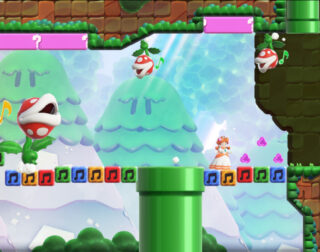Teens and preteens often appear to spend their lives in front of a screen. Teenager screen time has been a significant concern for parents and educators for the past decade, and it’s getting worse-through no fault of those affected teenagers. The COVID-19 pandemic has made us a country of working at home and remote schooling. If you want to be engaged, you need access to a screen. The previous angst about how screens distracted kids while doing their homework is now a full-time dilemma. More time on screens means more arguments between parents and teens. That is one of the reasons I wrote my new book, The Gaming Overload Workbook: A teenager’s guide to balancing screen time, video games & real life. Published by New Harbinger Publications, the book is a tool for encouraging conversations between teens and adults about screen time. It helps teens to see the benefits of screen time while at the same time recognize how distractions from their screens interfere with other parts of their lives.
The Gaming Overload Workbook provides 30 activities for teens to do that can help them to make the most of their screen time. It also encourages them to examine their own screen time, that of their parents and to engage the adults in their lives about the powerful role that screen-based technologies are playing during the COVID-19 pandemic. Realistically, during COVID-19, it’s not only teens who are struggling with too much screen time, but it’s also their parents who are having difficulty managing their own technology use.
Prior to COVID-19, parents in first world countries identified excessive screen time as being one of their most pressing health issues in recent years. In fact, in Australia, excessive screen time, not what kids were doing on screens but just the amount of time they were spending with them, was the number one health concern of parents in 2016. These concerns that teens are spending too much the time with screens are shared by parents, educators, pediatricians, and perhaps most interestingly, by the teens themselves. A series of studies conducted by Pew Research Center suggests that more than 50% of teenagers recognize that they spend too much time with screens and not enough time doing other things. And this was before COVID-19.
In my own work as a child clinical psychologist, teens have shared similar sentiments. They recognize that sometimes their screen time is excessive. Teens often feel as if they’re fighting an unseen enemy that keeps drawing them to screens even when they might prefer to do other things. As a result of these conversations with my teenage patients, I began interviewing them about their use of screens and what they could do to manage screen time. The results of those interviews culminated in my newest book, The Gaming Overload Workbook. The most interesting aspect of writing this book was asking teenagers about their own strategies for managing their screen time. Some of the best suggestions in the book were directly from these very thoughtful teenagers that I interviewed.
Teens want to be heard and understood about why they use their screens so frequently. They also want the autonomy to make good decisions about screen time. They clearly dislike when they are restricted by overly vigilant parents or harsh measures such as taking away cell phones for weeks at a time. Technology access means connection. Not just to be able to engage in remote schooling, but for keeping friendships and being included.
In my conversations with teenagers, I found that the best method to encourage talking about their screen time was to have an accepting attitude about how and when they use their screens. I did not minimize the importance of their social media use and video game play with their peers. In fact, I began to realize how important these activities were in their lives. Many teens described how screen-based technologies enriched their lives.
An open, accepting attitude on the part of adults, readily prompts many teens to acknowledge when their own screen time was getting the best of them; when it was interfering rather than enhancing their lives. Here are some of the best recommendations that they gave me and some that I have shared in The Gaming Overload Workbook. Because these ideas were offered by high school and college students, they might be more readily accepted by the teen in your life. I encourage you to share them. Here are 5 suggestions for teens to manage their own screen time
- Reward yourself with video game play after completing a defined task such as homework or chores
- When doing schoolwork put music on the phone and turn off notifications
- Ask your parents to keep your cell phone for a set amount of time when doing homework.
- Delete social media from your phone and use it only on other devices.
- Study with friends while making an agreement that you will both ignore social media and other screen-based distractions for a set amount of time.
There are many other strategies that are described in The Gaming Overload Workbook. I encourage you to purchase it and use it to engage in a meaningful discussion about the roles that screen time is playing in your family’s life.






I have read your article; it is very informative and helpful for me. I admire the valuable information you offer in your articles. Thanks for posting it. Resurge Supplement
Thanks, Randy for the sharing. This is my first time visiting your blog. Really I like your Blog. Keep doing more like this.